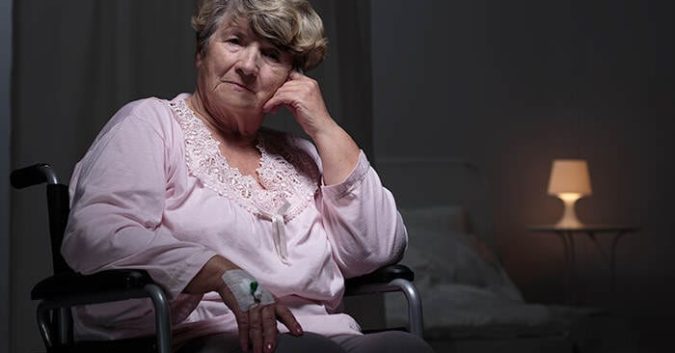About 40,000 people in Massachusetts live in and rely on nursing homes. The Bay State has roughly 400 such facilities, and at each nursing home residents trust that the owners have at least some shred of compassion for the people in their care.
But in this area of healthcare, “trust” is, unfortunately, a gray area. In Massachusetts, these trust boundaries have been repeatedly shattered by corrupt salesmen like Larry Lipschutz and his son, Avi "Zisha" Lipschutz, who intentionally mismanaged funds, sucking $1.8 Million out of a single nursing home to pay for other, completely unrelated business ventures.
Not surprisingly, the severely underfunded nursing home that felt the effects of this loss of funding, Braemoor Health Center in Brockton, MA (less than 30 minutes from Boston), suffered 3 1/2 times the number of health and safety complaints as the state average. Lipschutz's company, Synergy, is responsible for some 1,200 residents in Massachusetts and spent 20 percent less on residents than the state average for elderly care facilities. Poor management and a lack of funds on the part of the Lipschutz father-and-son duo have caused residents to receive care so poor that it should qualify as abuse. In some cases, this lack of care has led to death.
Underfunded Nursing Home Kills Resident as Complaints Pile up
Staff negligence in nursing homes has already taken casualties, like 83-year-old Mary Meuse. Meuse was living at the Woodbriar Health Center in Wilmington, MA (also owned by Lipschutz), when a lone, 21-year-old staff member accidentally dropped her on the floor, breaking both of her legs. Despite Meuse’s severe injuries, the nursing home didn’t send her to the hospital for a full 24 hours. She died of internal bleeding, just 2 days after Christmas.
Stories like these are heartbreaking and infuriating all at once. Synergy CEO, Zisha Lipschutz spent $25,000 of company money on New England Patriots playoff tickets and a fancy suite in Gillette Stadium, yet denied the staff of his facilities basic nursing supplies. Last year, the Massachusetts Department of Public Health (DPH) received 11,000 consumer complaints about nursing homes (many of them related to Synergy-owned properties) and only recently have state health regulators taken solid steps towards fixing the problem.
State Trains Staff and Creates Oversight Team
Dr. Monica Bharel, the Massachusetts state health commissioner, announced to the Boston Globe that the DPH will hire and train staff members to be assigned to nursing homes. The DPH is also creating an online system that will make it easier for consumers to file complaints against nursing homes.
Perhaps the biggest innovation spurred by recent nursing home scandals and tragedies is the creation of the Supportive Planning and Operations Team (SPOT). The new unit will conduct unannounced, “surprise” investigations, focusing on homes that have poor records. The SPOT team's main objective is to raise the standard of care among elderly facilities and to give the staff and management there better training.
In addition to re-training nursing home staff, the DPH will begin issuing fines in March. The current state policy is weak, only allowing for fines of up to $50 a day. Some advocates of nursing-home reform say that the state should toughen its rules and strip problematic nursing home operators of their licenses altogether. Though the DPH has always had the power to impose fines and revoke licenses, the agency has hardly used it in the past. Dr. Bharel is seeking to change this precedent, though she didn't state whether she would go as far as to revoke operators' licenses.
In many ways, the issue of elder abuse is as much a failing of the state’s regulatory agencies as it is of corrupt operators. If the state had vetted Synergy more carefully, a great deal of mistreatment might have been avoided. DPH didn't verify tax documents sent by Synergy that falsely claimed it had paid all of its state taxes. Similarly, the health department missed the fact that the Lipschutz's owed over $10,000 in fines for previous, shady business ventures. When the New Jersey-based company began aggressively buying facilities in Massachusetts in 2012, it had already racked up 1,400 violations in New Jersey for running a dangerous and nearly untenable apartment complex.
Stricter Oversight Is a Start, but There Is Still a Long Way to Go
Care for the elderly should be an essential service in any modern nation that seeks to call itself civilized. Placing a family member in a nursing home is already a difficult and stressful event for many families – it should not come with the fear of a parent or grandparent dying due to incompetence. Hopefully these steps taken by Massachusetts health regulators are just the first in a sustained push to reform weak policy and give our elders the sense of peace and well-being they so deserve. Sokolove Law is especially sensitive to these issues as a Boston personal injury law firm.
